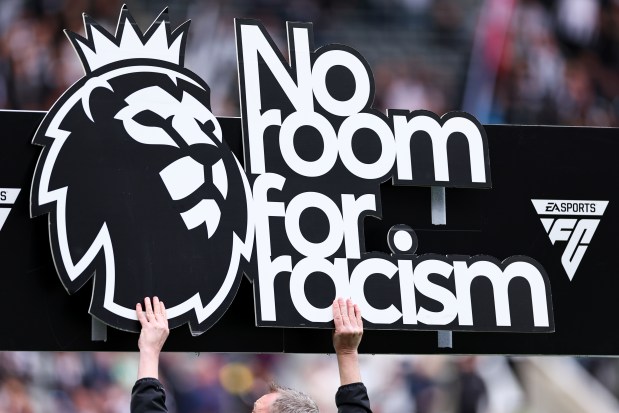
News
September 10, 2025
Can a football match be abandoned for alleged racism?
FOOTBALL matches can be abandoned for alleged racism under Fifa and Uefa rules, but only after a specific protocol has been followed.For England’s W
FOOTBALL matches can be abandoned for alleged racism under Fifa and Uefa rules, but only after a specific protocol has been followed.For England’s Women’s Super League (WSL) game to be abandoned due to alleged racism, the referee would have to adhere to a three-step process.
**Football Matches and Racism: Understanding the Abandonment Protocol**
The beautiful game, a global spectacle enjoyed by billions, unfortunately isn't immune to the ugly stain of racism. When allegations of racist abuse surface during a football match, the sport's governing bodies, FIFA and UEFA, have established clear protocols to address the situation, potentially leading to the abandonment of the game.
While the ultimate decision to abandon a match rests with the referee, it's not a snap judgment. It follows a carefully orchestrated three-step process designed to ensure fairness and address the alleged abuse effectively. This protocol is crucial, not only for protecting players from discriminatory behaviour but also for maintaining the integrity of the sport.
The first step typically involves the referee intervening and halting play. If the referee hears or witnesses racist behaviour, or if it is brought to their attention by players or officials, they are expected to stop the match. An announcement is then made over the stadium's public address system, warning spectators that racist behaviour is unacceptable and that the match could be abandoned if it continues. This serves as a direct appeal to the fans to self-regulate and curb the offensive behaviour.
Should the racist abuse persist despite the initial warning, the referee proceeds to the second step. This involves suspending the match for a specific period, usually around 5 to 15 minutes. During this suspension, teams return to the dressing rooms, allowing time for tempers to cool and for authorities to assess the situation. This pause also provides an opportunity for stadium officials and security personnel to identify and potentially remove the individuals responsible for the racist behaviour.
The final and most drastic step, abandonment, is only taken if the racist abuse continues after the suspension. If the referee, in consultation with match officials and potentially security advisors, determines that the situation cannot be controlled and that the safety and well-being of the players are at risk, the match will be abandoned. The decision to abandon a game is never taken lightly, as it has significant consequences for both teams, the league, and the fans. However, FIFA and UEFA emphasize that combating racism is paramount, and abandoning a match may be necessary to send a
**Football Matches and Racism: Understanding the Abandonment Protocol**
The beautiful game, a global spectacle enjoyed by billions, unfortunately isn't immune to the ugly stain of racism. When allegations of racist abuse surface during a football match, the sport's governing bodies, FIFA and UEFA, have established clear protocols to address the situation, potentially leading to the abandonment of the game.
While the ultimate decision to abandon a match rests with the referee, it's not a snap judgment. It follows a carefully orchestrated three-step process designed to ensure fairness and address the alleged abuse effectively. This protocol is crucial, not only for protecting players from discriminatory behaviour but also for maintaining the integrity of the sport.
The first step typically involves the referee intervening and halting play. If the referee hears or witnesses racist behaviour, or if it is brought to their attention by players or officials, they are expected to stop the match. An announcement is then made over the stadium's public address system, warning spectators that racist behaviour is unacceptable and that the match could be abandoned if it continues. This serves as a direct appeal to the fans to self-regulate and curb the offensive behaviour.
Should the racist abuse persist despite the initial warning, the referee proceeds to the second step. This involves suspending the match for a specific period, usually around 5 to 15 minutes. During this suspension, teams return to the dressing rooms, allowing time for tempers to cool and for authorities to assess the situation. This pause also provides an opportunity for stadium officials and security personnel to identify and potentially remove the individuals responsible for the racist behaviour.
The final and most drastic step, abandonment, is only taken if the racist abuse continues after the suspension. If the referee, in consultation with match officials and potentially security advisors, determines that the situation cannot be controlled and that the safety and well-being of the players are at risk, the match will be abandoned. The decision to abandon a game is never taken lightly, as it has significant consequences for both teams, the league, and the fans. However, FIFA and UEFA emphasize that combating racism is paramount, and abandoning a match may be necessary to send a
Category:
Sports